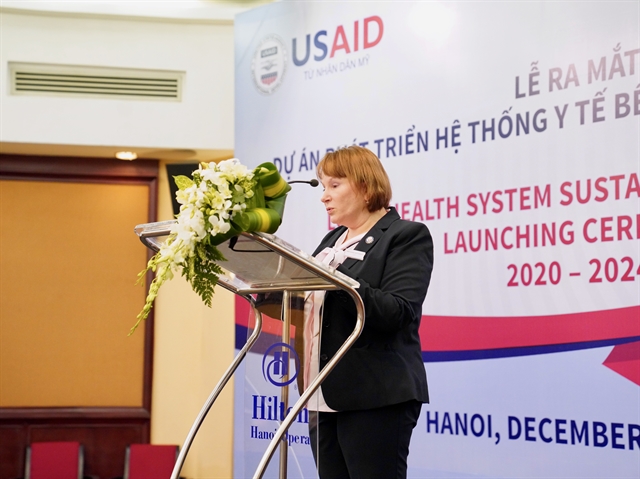 Society
Society


|
| USAID/Việt Nam Mission director Ann Marie Yastishock speaks at the event. — Photo courtesy of the US Embassy in Việt Nam |
HÀ NỘI — The United States Agency for International Development (USAID) launched the Local Health System Sustainability (LHSS) project in Việt Nam on Tuesday.
It aims to strengthen the Vietnamese Government’s capacity to sustainably manage HIV and tuberculosis (TB) programmes towards achieving the country’s commitment to end HIV and TB by 2030.
During the launch event, USAID/Việt Nam Mission director Ann Marie Yastishock congratulated the Government of Việt Nam and the Vietnamese Ministry of Health on the successful transition of HIV response from donor to domestic funding, with Social Health Insurance (SHI) as the primary financing mechanism.
“Việt Nam now has 90 per cent of HIV patients enrolled in SHI. All treatment facilities can now be reimbursed for HIV services. Most importantly, SHI funds are now used to procure anti-retroviral drugs, the most expensive component of an HIV response. This is a remarkable trajectory of success - one we are all proud to share with Việt Nam. USAID, through PEPFAR, has supported the government in updating policies and building systems that would support this transition,” he said.
Through the LHSS Vietnam project, USAID will continue to work with the Government of Việt Nam to strengthen public financial management systems for the health sector and find greater efficiencies in social health insurance.
It also increases, improves the efficiency of domestic financing of HIV prevention and treatment services, as well as strengthens the capacity of Việt Nam’s supply chain management system, integrates TB services into social health insurance.
LHSS Vietnam is a four-year project between 2020 and 2024 with a planned budget of US$13.9 million, funded by the US government through PEPFAR and USAID.
It is a part of USAID’s global initiative in integrated health systems strengthening to help low- and middle-income countries transition to sustainable, self-financed health systems as a means to support access to universal health coverage. — VNS




